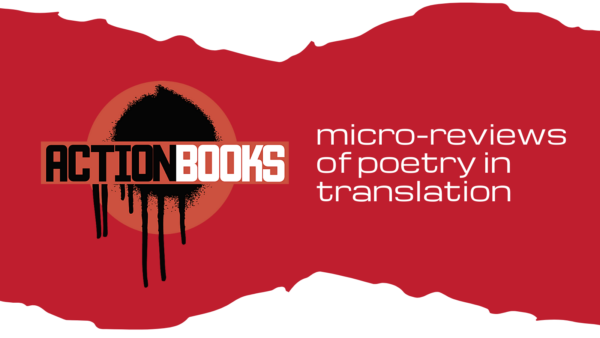curated by Katherine M. Hedeen
Reviewing poetry in translation
- recognizes translators as authors
- destabilizes narrow definitions of originality, authenticity, and authorship
- makes visible the artistry of translation
- is dissent, defiance, disobedience, subversion, solidarity
Where better than the Action Books blog to do the work?
Microreviews of poetry in translation coming at you every few months right here!
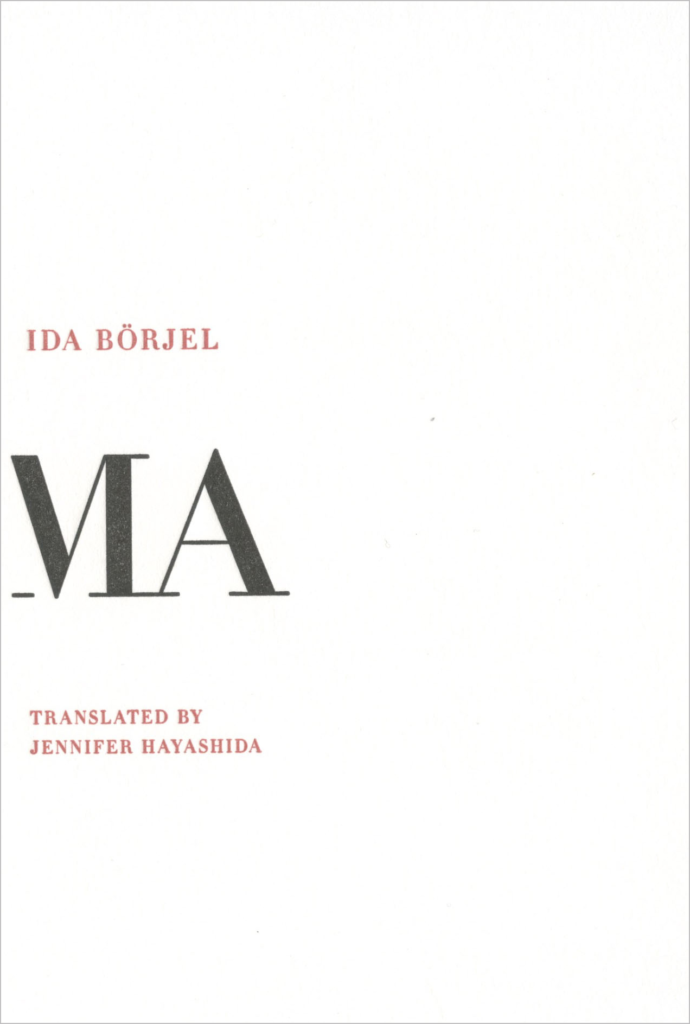
MA
Ida Börjel, Trans. Jennifer Hayashida
Ugly Duckling Presse, 2023
336 pages
$20.00
An early developmental, elemental sound, baby to caregiver: ma.
Based on, like in structure to, in conversation with, Inger Christensen’s 1981 alfabet, an abecedarian dealing with themes of nuclear war and ecological devastation.
Corresponding words in English do not always begin with the same letter as in the Swedish (the T section begins with “silence”— in Swedish, “tystnad”), but Hayashida does not contort language to fit the alphabet pattern; she finds other places to emphasize each section’s letter, including through consonance and assonance.
Devastation, violence, and human cruelty and greed across the globe—specifically that perpetrated by Western countries—are an unending litany in MA; the book’s lack of page numbers enacts this ceaselessness.
“Exists” links elements of Christensen’s book in Susanna Nied’s English translation; in MA the key word has shifted to a darker, final past tense: “motherearth was.”
“First thing we learned / was the world would end / in our time.” —Eileen Myles
Goading moments of rhyme ring with unforgettable power: “identity versus entity,” “a tired, fried light,” “wracked in whose cracks lay.”
How can both personal and world-wide loss be borne—or even comprehended? A question the book asks and cannot answer.
Idioms and allusions are a strength of Hayashida’s language: “wheeling and dealing was; a mortal coil.”
Jennifer Hayashida also uses subtle additions to achieve the desired letter of the alphabet: for the letter F, “flock of birds” for “fugel” in Swedish.
Katrina is just one example of how the U.S. government is called out in MA for its preference for “profit margin” over human life, especially the lives of people of color.
Left-side pages are blank but for M and X: gap, loss, all the unknown losses.
M is halfway through the English alphabet, though MA includes the three additional letters in the Swedish alphabet: Å, Ä, Ö.
Near the halfway point comes M: a private loss too painful to be narrated can only be told in fragments I read as the loss of a child and the despair of a mother. “I breach…I fumbled…and there was no out.” Hayashida’s translation does not overdetermine the first-person speaker: is the mother speaking, or the child? Both?
Only this mother is also the world-mother grieving; in a kind of “leveling logic,” grief is both universal and specific, “a loneliness / everyone shares with no one.”
Prophetic: first written in 2014, parts of MA seem to presage our current moment and are chilling to read: “is / bread coming is / water the attack” (genocide in Gaza), “microscopically swarming atoms, virus, resistance” (COVID-19).
Quo, status: “the norm / of global domination.”
Recurring sound is as much internal as alliterative, such as in the R section: “errata were; renunciation / sterile Rhineland sisters.”
Sites are sometimes specifically named, but part of the power of Hayashida’s translation is the way references are open enough to allow readers to hear echoes of their more local/temporal realities.
“They are no children / no one carries them anymore” ends Christensen’s alphabet (tr. Nied): perhaps the point from which MA begins.
Updating alfabet, MA is preoccupied with the digital age and its effect on our collective memory: “the photo-shopped archive,” “the facially recognized individual.”
“Visions the tears / the tongue their cry” –Christensen, tr. Nied
World where the beloved cannot be.
eXamples of some of the women listed as end words of poems or sections: Bellona, Gaia, Lucy, Scheherazade, Anne.
Yet in the darkness, revolutionaries, saboteurs, and freedom-seekers exist: Aung San, suffragettes, Voina, and the butterflies that symbolize hope and change (also a nod to Christensen’s Butterfly Valley).
Zero escape from “contradictions between self and world.” (KV)
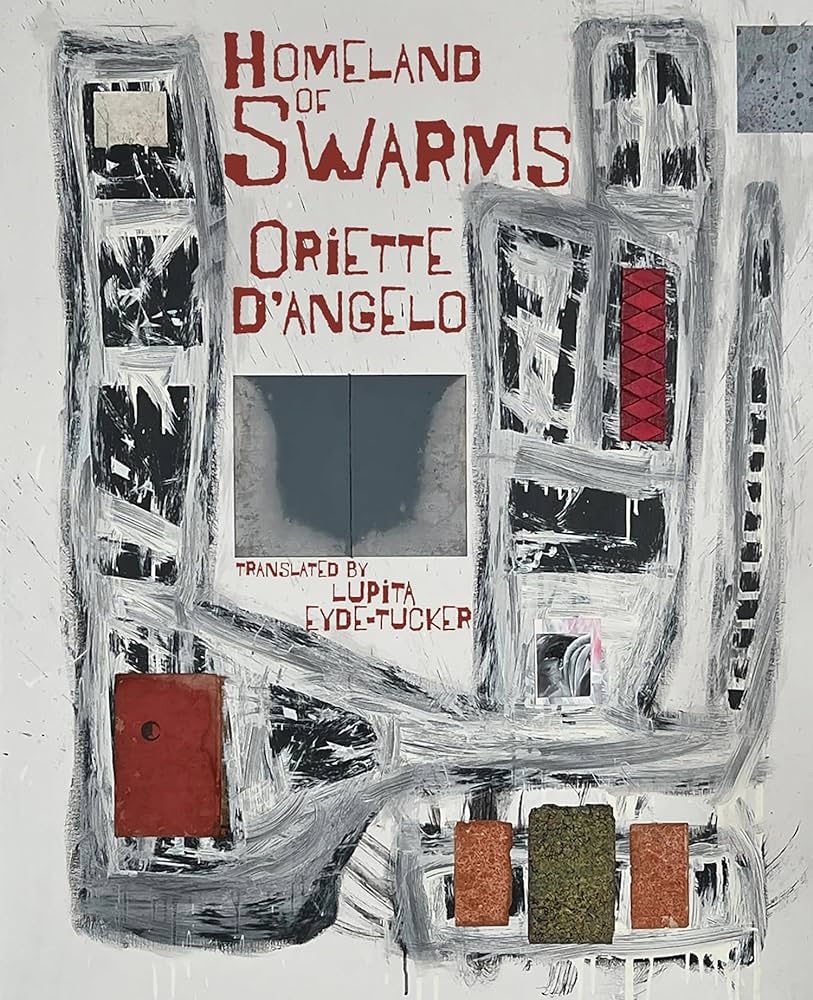 Homeland of Swarms
Homeland of Swarms
Oriette D’Angelo, Trans. Lupita Eyde-Tucker
co•im•press, 2024
152 pages
$19.95
Homeland of Swarms is award-winning Venezuelan poet Oriette D’Angelo’s debut poetry collection in English, translated with care from the Spanish by bilingual poet and translator Lupita Eyde-Tucker. The text, which is arranged in three sections and appears in entirety both in English and Spanish, serves as a salient and impassioned exploration of disease—of the body, of the state, of crisis itself.
My body is a metamorphosis screaming / Don’t save me! (10)
D’Angelo’s collection begins with an untitled section, the first poem titled EMERGENCY ROOM, and from here the reader enters a sprawling series of disasters. Homeland of Swarms catalogues many losses: those imposed by sickness, by love, and those losses forced upon citizenry living under the boot of Hugo Chavez, and other men like him. Descriptions of this loss range from those more metaphoric to bracingly literal: To kill and die for a sack of flour. / Kill and die for a smart phone (15). Any nation can break—a fact too often forgot in the comfort of well-lit living rooms across the world—and these poems know that.
There is, too, in Homeland of Swarms, much of the personal which is, as ever, the political. From the start, the reader begins to learn the speaker and meets an addressee, a you, probably many yous, who continue to appear throughout the text in narratives anecdotal, imagined, otherwise.
I asked our love to be a bridge over a gorge, but it only became a / preventative measure, to avoid falling into the void too soon (18)
Section two, titled ESCAPE ATTEMPTS, opens with a lyric from Canadian indie rock band Arcade Fire’s track Suburban War which, in the context of Homeland of Swarms, reads as comment on the violent fiction we call borders, the idea of home, and the nature of futurity: They say the past won’t rest / until we jump the fence and leave it behind (21). In this section, D’Angelo displays an exacting command of language. The poems are sparse (most take the form of couplets) and sit as truisms, each with its own page, stark in an ocean of white space.
If it is true that I am from your rib / then we shouldn’t hurt each other (26)
In the final section D’Angelo returns to longer-form poetry. The concerns are extremely bodily; the body as its own city, a city within a nation on collapse, a body in collapse. We’re in the mind as well, in memory, its austere corridors. All considered, this is a collection to be read and revisited, considered in many contexts. I’ll leave you with D’Angelo’s own words on how strange (and sometimes terrible) it is to be anything at all, from her poem THIS MUST BE THE PLACE:
Let’s start the disaster from the beginning: / what a punishment, to remain and endure / inside a limit imposed by blood (54). (ZCK)
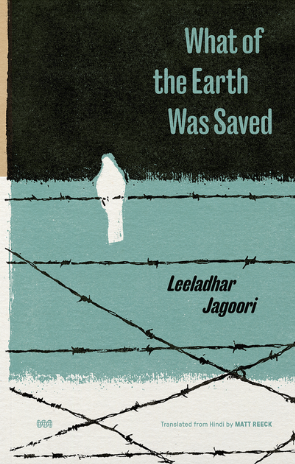 What of the Earth Was Saved
What of the Earth Was Saved
Leeladhar Jagoori, Trans. Matt Reeck
World Poetry Books, 2024
200 pages
$20.00
One of the challenges confronting the various discourses on ecopoetics is how to integrate the diverse approaches to the field by poets outside of our Western hemispheric contexts. Matt Reeck’s translation of What of the Earth Was Save, by the Indian poet Leeladhar Jagoori, is a welcomed contribution to an expanding globalised conversation on the more-than-human world, one that I hope will destabilise Anglo-American ecological thought. Jagoori, an eminent free verse poet in India’s postcolonial literary landscape, highlights the entanglements of the environment with humanized processes, publics, and systems. On the one hand, we might read a poem such as “The Waiting Place” as a good example of how embedded the human is with natural spaces. In this particular instance, our human and more-than-human kinships are concretized through images of gendered geological bodies:
the world today
is filled with the scent of
freshly dug-up earth
shaking each coal free
from the womb (41)
On the other hand, I also read many of the poems in this collection as analogies and as conceptual metaphors, where the wildlife—and birds, in particular—are strategic vehicles for conveying the poet’s critiques against political authoritarianism that has shaped India’s public commons as well as the private spaces of the home, as the poem “The Bird’s Bath” might hint:
before giving birth
the bird had made a nest
to hurt her
is to hurt freedom (95)
Yet nowhere in the collection do these forces of state-enforced oppression collide with the environment more forcibly than in the long narrative poem “Baldev Khatik,” where a poor man and a police officer are jointly criminalised by their exclusions from political power. Whether it is through the metaphors of dead crows, a “thornapple bush growing” in an ambulance engine, or the eerie persistence of night into day, Jagoori’s lyricism highlights the reaches of political violence that is enacted against marginalized populations. What of the Earth Was Saved is painfully current for our political climate: Jagoori’s poem urge the reader to renew a commitment to a liberatory and anti-authoritarian eco-political consciousness. (OT)
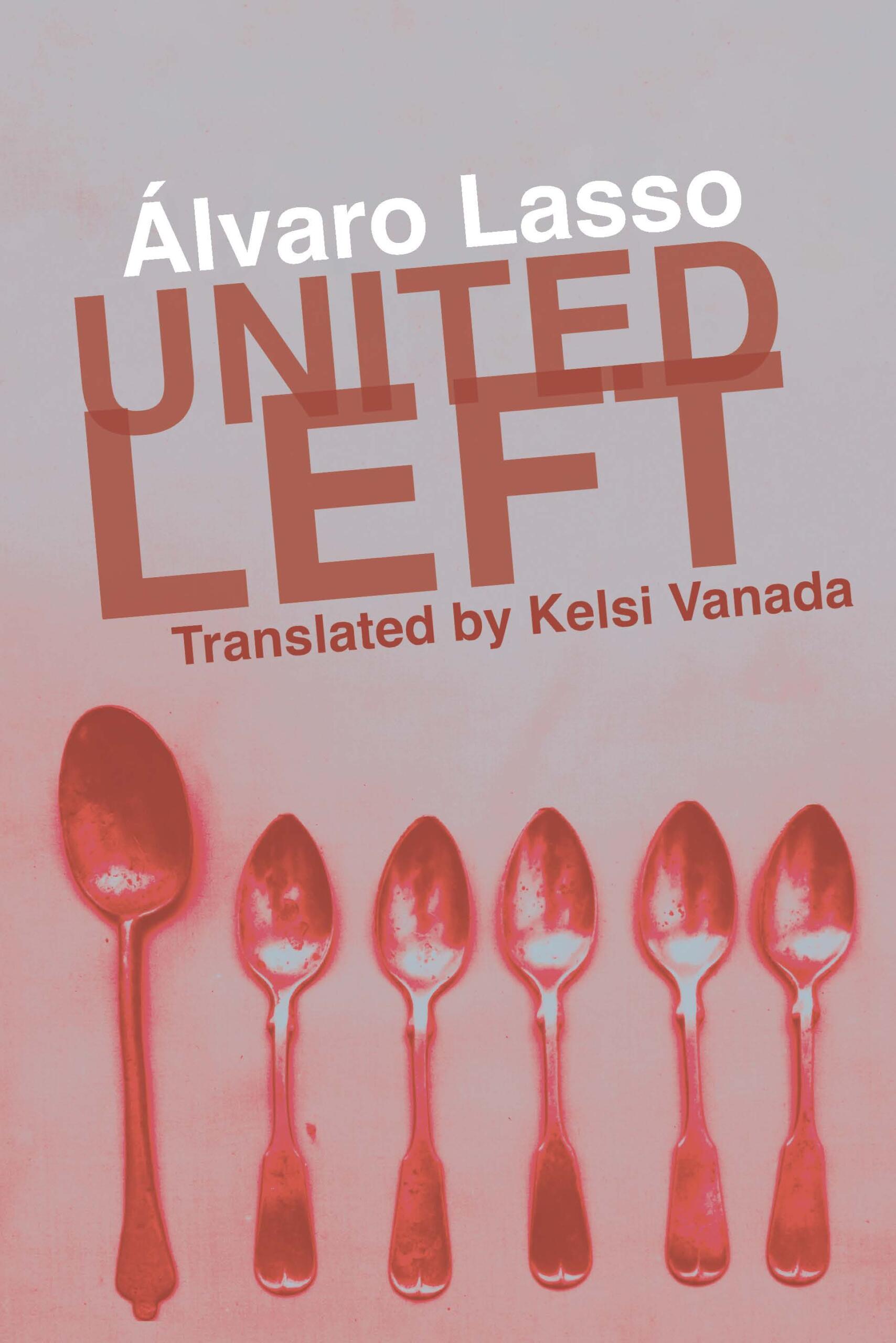 United Left
United Left
Álvaro Lasso, Trans. Kelsi Vanada
eulalia books, 2024
85 pages
$18.00
Álvaro Lasso’s United Left is vibrant with anger, surrealism, and absurdity. The intersection of languages, the many poem titles with references to Latin American pop culture, the migration of words, and more, underscore what it means to live in a world where manifestoes are present, not just in our everyday lives, but also in a more vivid way, through the use of innovative language and reimaginations of the world.
Some of my favorite parts of United Left include sections of “Force of Destiny,” where we see a child’s perspective:
Your parents were always together. They belonged to the same sidewalk. As kids they saw the same tanks and enjoyed, in faded colors, evenings with no electricity. When they met, they were efficient: they didn’t need metaphors.
In fact, there are a number of poems in this collection written from the perspective of children, a shift in understanding the world that is different from adults—who may have forgotten what it was like to resonate emotionally with their surroundings. To reimagine this in another language requires much of a translator’s labor in making voices like this visible.
In “Nobility,” readers are presented with the reality of a human collective being capable of imagined violence, of reflecting on the ideas of death, reincarnation, and how they relate to ideologies:
Also present is the public, who paid no admission, who participate in justice without understanding it. They listen to the leader’s voice without a single gesture of approval, in the hope of discovering what a headless body is like.
Lasso’s language, and the way in which these scenes are presented, with a theatrical effect on the page, has an impact. The poetic voice can be haunting, and Vanada’s voice in English brings the emotion forward, gifting readers lasting images, calling on us to witness the fall of an established state and to fight back with our beliefs, reminding us what it’s like to live right now. Though these poems are located in Peru, they drift toward migration and cultural crossings. They go beyond specific cultures and borders.
Lasso’s language is full of unexpectedness. I can only imagine the challenging yet important task for Vanada here: to connect and move between the words. In Vanada’s note, she highlights the challenge of finding the exact right words, particularly when recreating the visual effects (often references to films) that make up the bulk of United Left. For me, the result is clear, Vanada’s choices are equally unexpected, in the best way possible. As a reader, I take a journey alongside Lasso and Vanada, their language my guide in making sense of this world. (JT)
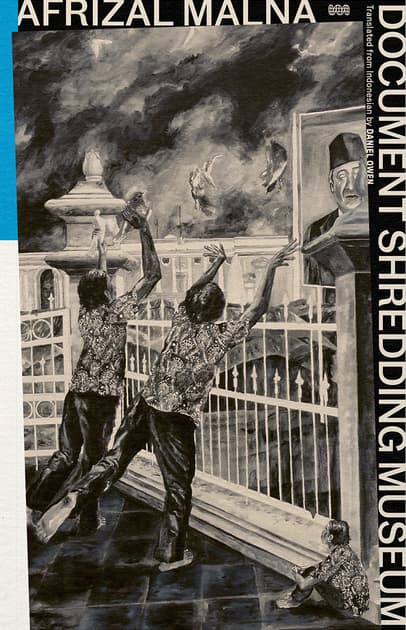 Document Shredding Museum
Document Shredding Museum
Afrizal Malna, Trans. Daniel Owen
World Poetry Books, 2024
208 pages
$20.00
Language and translation both “strain” and flourish in Daniel Owen’s translation of Document Shredding Museum by renowned Indonesian poet Afrizal Malna, beginning with the very first lines: “It’s a shame this poem’s already been erased when / I go to read it.” Coming from one of the most linguistically diverse nations in the world, Owen’s translation and Malna’s monolingualism heighten the “migration,” as Owen observes, of his poetry into English and his reflections on the relationship between the use of language and authoritarianism as well as history. In poems such as “Used Language Shops A and B,” language is “broken” and “perfected” as it is reinvented and “used”:
A broken fan and a
used fan. Neither knows if broken because used
or used because broken. Or broken and used because
the rub of language dustMy English language, language that gags the world,
gets more fluent listening to conversation,
translations elapse. Like A asks
B: “B, are you well?” When B goes to
answer A: “A, I’m well,” A’s question has already
passed by, no longer A. Becoming a used question
for an answer that perfects the past.
As Malna cuts away at the division between lyric poetry and historical text, Owen supplies significant historical research in addition to rebuilding in English images and memories of imperial destruction. Malna’s observations on his personal relationships and daily life in Indonesia are enmeshed with its (post)colonial and modern political history, complicating traditional expectations of poetry and research texts. He reaches beyond international borders to visit China with a passing request from a friend to bring back an all-too-characteristic “Mao hat” or to form the ligaments between traditional Indonesian art forms and cultural cannon with Western literature. He reaches beyond conventional concepts of a book or poem’s form and structure, and beyond chronological concepts of time and national and colonial concepts of language to consider its past and present.
Malna and Owen further subvert the traditional structure of a book with pieces such as the “Index,” which functions as an index of fragmented moments in daily life while also subtly illuminating both this particular book’s–and thus, all historical texts’–relationship to (post)colonial time. While it marks the end of lyrical poetry in Document Shredding Museum, it still continues within each of its fragments throughout this prose block and into Malna’s “Afterword: A Note in the Shadows.” The rapid fragmentation of moments in Malna’s life, each beginning with an “and,” functions in harmony and tension with the heavy “raindrops” of periods at the end of each short phrase. Poetry has already occurred and continues into the present. Thus, Malna and Owen transform the Indonesian poems and their English translations from finite points between each other on the page to junctures of the continuous use of language extending throughout the book and throughout history. (SP)
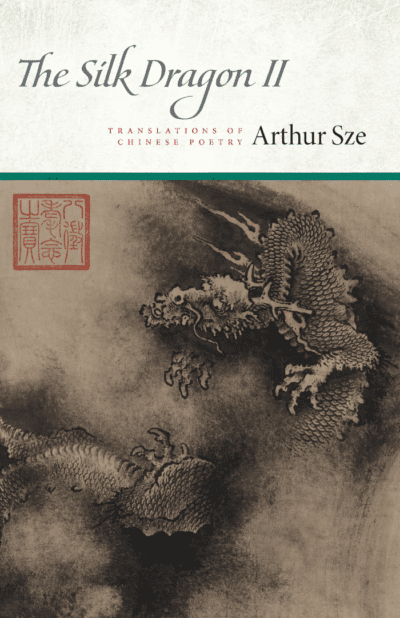 The Silk Dragon II
The Silk Dragon II
Trans. Arthur Sze
Copper Canyon, 2024
104 pages
$18.00
A collection covering twenty-nine poets and nearly 1,700 years, Arthur Sze’s The Silk Dragon II is the culmination of a lifetime’s dedication to the craft of translation. While only a few excerpts from a rich and diverse history of Chinese poetic expression, Sze’s translations are intentional in every word, pause, and allusion; from quiet lamentations of lost love to cutting condemnations of the United States’ invasion of Okinawa, each poem stands both for itself and as a part of a whole.
“The poems are in conversation with each other,” Sze writes in his updated preface, “and, for Chinese poetry, an expanding web may be a more appropriate image than a line, or lines, of development.” With little in the way of biographical or historical context between poems, a turn of a page can jump centuries. By omitting contextual details, Sze asks readers to draw connections between the poems as poems, rather than representations of entire eras.
Sze’s collection begins in the fourth century with the quiet, atmospheric poetics of Tao Qian:
The mountain air is fine at sunset;
flying birds go back in flocks.
In this there is a truth—
I wish to tell you, but lose the words.
Flip a few pages—1300 years ago, Li Bai danced drunkenly under the moon and saw his shadow stumble; the contemporary reader recalls watching their drunken shadow trip under streetlights. Continue reading, and Du Fu depicts a forgotten tragedy:
Lying-Dragon and Leaping-Horse
have disintegrated into yellow dust;
let the news of all our affairs
. . . be still and hushed.
And some time later, Li He writes that Emperor “Liu Che . . . is just a heap of bones.” Reading through this collection, the reader has a sense of the passage of time as what once was contemporary becomes antiquated. Flipping through hundreds of years, represented by just a handful of lives, dramatist Ma Zhiyuan’s vignette-like lyrics recall an era just a couple hundred of years before Tao Qian—what for Tao Qian must have felt long before his time, but for us, seems quite close in time:
Think of the Qin palace
and Han imperial city.
It is all wilds now
where oxen and sheep graze.
With controlled and intentional rhythm, the poems set the pace; they tell us when to breathe. Throughout the collection, Sze transposes form, content, and musicality into transfixing English poetry; he also has an acute sense of what must be compromised within the translation. Sze offers a fascinating glimpse into his translation process in the original preface, outlining the journey from Chinese to English for one of Li Shangyin’s untitled poems. In this case, what can be said in one line in Chinese becomes “cramped” in English—Sze gives to this, and breaks the line in two. As for where he inserts the line break, Sze’s intimate knowledge of the rhythm of the original poem—a caesura after the fourth syllable—becomes an enjambment at the same semantic point in the English. With this care for the figurative qualities of the original poems, Sze crafts unique, intentional translations that are both internally and contextually profound.
The Silk Dragon II represents a lifetime of thought and reflection; it is a masterpiece of connections drawn between eras, cultures, and languages—not only in translation to English, but through the “expanding web” of poetry in China, as poets learned from and rebelled against their predecessors. In bringing these works to English, Sze offers a monumental contribution to this legacy of poetry and thought, as anglophone readers are brought into conversation with just a few of China’s most contemplative, experimental, and revolutionary poets. (BC)
Zoe Contros Kearl is a writer and editor based in Vermont. Writing appears in Be About It, Entropy Magazine, HAD, Maudlin House, Neutral Spaces, The Quarterless Review, and elsewhere. ZCK currently serves as Nonfiction Editor for American Chordata Magazine.
Bella Creel is a blog editor at Asymptote Journal and an English teacher in Hyogo, Japan. She can be found on Twitter at @isabella_creel.
Sarah Pazen is a poet, translator, and visual artist from Chicago, Illinois. Her work has appeared and is forthcoming in EX/POST Magazine, The Tulane Review, MAYDAY, BreakBread, and more. She can be found on Twitter @copingskills.
Jenna Tang is a Taiwanese writer and translator who translates from Mandarin and Spanish. Her works are published in The Paris Review, Latin American Literature Today, AAWW, Catapult, Mcsweeney’s, and elsewhere. She translated Lin Yi-Han’s novel, Fang Si-Chi’s First Love Paradise, one of the most iconic #MeToo movement titles from Taiwan.
Orchid Tierny is a poet and scholar from Aotearoa New Zealand. She is the author of a year of misreading the wildcats (The Operating System, 2019) and looking at the Tiny: Mad lichen on the surfaces of reading (Essay Press, 2023). She is an assistant professor of English at Kenyon College. www.orchidtierney.com
Kelsi Vanada’s translations include United Left by Álvaro Lasso, The Visible Unseen by Andrea Chapela, and The Eligible Age by Berta García Faet. She published Rare Earth, a chapbook of original poems. Kelsi was awarded a 2024 NEA Translation Fellowship and works as Program Director of ALTA in Tucson, AZ.
